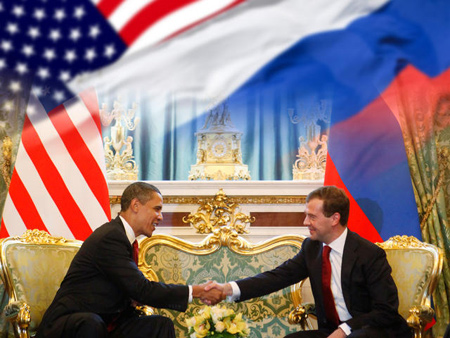
To put it mildly, the situation in Kyrgyzstan is a mess. Ethnic Uzbeks are being slaughtered in the streets and the government, itself there by virtue of an illegal power grab in April, is begging for Russian help.
The humanitarian toll has been grim, with at least 170 dead and 1,500 wounded and perhaps 100,000 refugees already scattered to Uzbekistan. And that’s just the official numbers recorded by hospitals; there’s reason to think the real figures are much higher.
![]() And, as Time’s Simon Shuster notes, the geopolitical situation is equally dire: “Some experts say the violence could spread across the region, where ethnic hatred and scarce resources have created an atmosphere ripe for cross-border conflict. Both Russia and the U.S. have a lot to lose if Kyrgyzstan falls into chaos.”
And, as Time’s Simon Shuster notes, the geopolitical situation is equally dire: “Some experts say the violence could spread across the region, where ethnic hatred and scarce resources have created an atmosphere ripe for cross-border conflict. Both Russia and the U.S. have a lot to lose if Kyrgyzstan falls into chaos.”
Foreign Policy’s Steve LeVine reports that Kyrgyz President Rosa Otunbayeva petitioned Washington for troops and rubber bullets but was turned down. In a follow-up, LeVine wonders, “Has the U.S. given up on Central Asia?”
What do you do when large-scale ethnic violence breaks out in a country where you have a key military base, but the local government can do nothing to stop it? When that country is situated in a region on which you have spent untold hours of diplomatic effort and hundreds of millions of dollars over an eighteen-year period, and staked a claim to a primary seat at the table of influence? Where matters like oil, the Taliban, narcotics and nuclear trafficking intersect? But all this happens while your military is stretched to the breaking point elsewhere, and, to be blunt, you have other fish to fry?
You phone the Russians.
That’s a rather cheeky response to the fact that Russian troops flew in to secure their base near Bishkek and that the Krygyz government has begged Russia for help, evening offering to renew discussions, yet again, over the American base in Manus.
But, come to think of it, phoning the Russians might not be a bad idea. There are no good options here. Neither Russia nor the United States would welcome the unilateral entry of the other. Nor would either welcome a regional domino reaction to tens of thousands of refugees flooding across the “stans” of the former Soviet Union.
So, why not some sort of joint venture? Not only would it ally mutual fears but it would provide mutual benefit, both in terms of the crisis at hand and the much ballyhooed “reset.” Whether the mutual cooperation took the form of an ad hoc peacekeeping force or leadership through the UN Security Council or the OSCE—or, dare I say it, NATO and its Euro-Atlantic Partnership Council—is really a logistical problem to be worked out.
As TNI’s editors noted yesterday, Washington Post columnist David Ignatius is thinking along similar lines. He argues that “Russia and America should be natural partners in Central Asia. Certainly, they share the same enemies—the militant Islamic groups and criminal gangs that threaten stability in the region.” And, he hopes, maybe working together here would help get cooperation on Iran.
While I wouldn’t hold my breath on that one, to quote Rahm Emanuel, “You never want a serious crisis to go to waste.” Certainly, this is a classic “opportunity to do things you think you could not do before.” And it’s something that actually needs to get done.
James Joyner is managing editor of the Atlantic Council. This essay originally appeared in The National Interest as "Turmoil in Kyrgyzstan."
Image: us-russia.jpg
